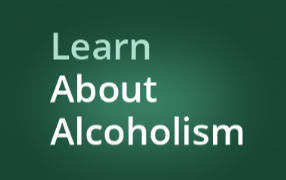Effects of Teenage Drinking
The effects of teenage drinking can be quite serious. Fortunately, teenage alcohol use is on the decline.
Still, it is a problem of note, with three out of four high school students reporting that they have consumed an alcoholic beverage prior to graduating high school.
The most serious effects of teens drinking is that it leads to adult dependence.
The National Institute on Alcohol Abuse and Alcoholism reports that teens who start drinking before the age of 15 are four times more likely to develop an alcohol addiction than those who do not begin drinking before the legal age of 21.
Drinking and driving is another danger of teenage alcohol use. Forty percent of all alcohol-related fatal car crashes involve teens.The National Institute on Drug Abuse also reports that students who drink alcohol are four times more likely to drive drunk than those who do not use alcohol.
Teens may not realize they are too impaired to drive, or they may be afraid to call home for a ride. Regardless of the reason, teens that drink often drive while under the influence.

Teenagers also face dangers in physical altercations, sexual assaults and date rapes associated with drinking. Alcohol has a serious effect on the developing brain of teenagers.
Drinking alcohol can inhibit healthy brain development, alter cognitive abilities and stunt emotional growth. Heavy drinking during this critical period of brain development can also cause permanent damage to these areas of the teen’s brain, resulting in neurological disorders ranging from depression to severe memory loss later in life.
Even those who do not display any outward signs of addiction or physical damage caused by excessive alcohol consumption are still at risk for short-term and long-term effects from teenage booze use.
Teenage drinkers experience annoying but harmless “drunkenness” including moodiness, slurred speech, clumsiness, lack of coordination and an odor of alcohol that lingers on his or her breath and skin.
The real danger of teen alcohol use is the lesser-known short-term and long-term effects of chronic drinking. Chronic teenage drinkers experience problems with memory, judgment, motor skills and academics. They also face issues like death from fatal car crashes, sexual assault and other life-altering events that can result from their bad decisions while under the influence.
Teenagers who are intoxicated by alcohol are more likely to engage in risky behaviors than those who do not drink, including having unprotected sex while intoxicated . They also have higher rates of depression and anxiety than those who do not drink at all or who drink infrequently.
Other effects of teenage drinking include decreased inhibitions that may lead to risk-taking behaviors. Alcohol intoxication impairs the judgment and teens who are intoxicated may engage in a number of dangerous behaviors.
Alcohol may also serve as a “gateway drug” into more serious drug use. Once teens have decided alcohol use is acceptable, they may feel other drugs are also okay. Impaired judgment may also lead to the experimentation with other drugs.
Teen alcohol use nearly always causes:
- poor performance in school, if the teen is using on any kind of a regular basis.
- Teens who use alcohol have trouble concentrating in class and on assignments.
- They also have difficulty with peer relationships and with relationships with teachers and other authority figures.
- Teen alcohol use also causes family problems. Teens who use alcohol may withdraw from the family and have difficulty with family relationships. They may demonstrate behavioral problems as well.
There are also health risks involved with alcohol use. People today are well aware of the health problems caused by excessive alcohol consumption. Health problems can include stomach ulcers, liver problems, heart problems, and malnutrition.
These problems generally occur in people who have been drinking over a longer period of time and are not always seen in teens, but can result as they grow older if they continue to drink.
Finally, teens who use alcohol may have legal problems due to their behavior. Underage drinking is illegal, and teens who drink may engage in other illegal behaviors as well.
The effects of teenage drinking is a problem that worries parents, educators, and policy makers alike. It is a far-reaching problem and affects us all directly and/or indirectly.

Preventing Teenage Alcohol Use
Fortunately, there are things that can be done to decrease teenage alcohol use. By simply talking to their teenagers about the use of alcohol and the effects of teenage drinking, parents can reduce the risk of their children drinking.
Studies show that teens whose parents talk to them about alcohol and drugs are 42% less likely to use those substances than teens whose parents don’t discuss the issue with them.
Parents can also help by setting good examples for their teens. If they drink, parents should do so responsibly, and never drive while under the influence.
Parents can also help by monitoring their children’s activities and limiting them to those that are safe. Parents should especially monitor their teens when they go out with friends.
Teachers, counselors, nurses and physicians can also play an important role in preventing teenage alcohol use through education and awareness. If a teen is displaying signs of alcohol abuse or addiction, they need to be referred for further treatment as soon as possible to prevent the long-term effects from becoming a problem later on.
Teenagers who drink may have difficulty learning if they do not address their alcohol use issues early. By addressing the issue at an early stage, it is much easier to solve than if teenagers wait until later to seek assistance for their drinking problems.
Most schools also provide educational programs designed to educate students about the dangers of underage drinking. Some of these programs are more effective than others.
One popular program, DARE, involves local police officers coming into the schools to talk to students about drugs and alcohol. Its effectiveness has been called into question, but it is still one of the most widely used programs today.
Help Save Your Loved One from Alcoholism
Teenage drinking is preventable. If your teen is battling against bad drinking habits, reach out to a dedicated treatment provider for help.

I am a Mental Health Counselor who is licensed in both New York (LMHC) and North Carolina (LCMHC). I have been working in the Mental Health field since 2015. I have worked in a residential setting, an outpatient program and an inpatient addictions program. I began working in Long Island, NY and then in Guelph, Ontario after moving to Canada. I have since settled in North Carolina. I have experience working with various stages of addiction, depression, anxiety, mood disorders, trauma, stages of life concerns and relationship concerns.
I tend to use a person-centered approach which simply means that I meet you where you are and work collaboratively to help you identify and work towards accomplishing goals. I will often pull from CBT when appropriate. I do encourage use of mindfulness and meditation and practice these skills in my own life. I believe in treating everyone with respect, sensitivity and compassion.
I recognize that reaching out for help is hard and commend you for taking the first step. We have professionals available who would be happy to help you move closer to reaching your goals related to your drinking concerns. You may reach these professionals by calling 877-322-2694.
